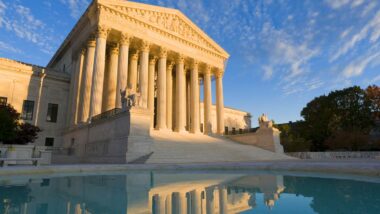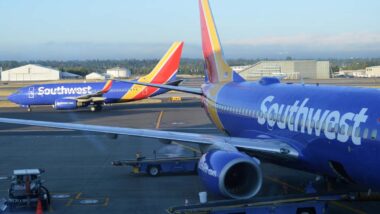Top Class Actions’s website and social media posts use affiliate links. If you make a purchase using such links, we may receive a commission, but it will not result in any additional charges to you. Please review our Affiliate Link Disclosure for more information.
As the coronavirus pandemic reshapes virtually all aspects of daily life across the nation, laws related to work and the workplace are becoming very real issues for Americans.
Aspects of employment law, including if and when an employee can be fired, workplace conditions, wages, unemployment, and the like have always affected everyday Americans.
Now, there are a number of work and workplace issues that have come into sharp focus as the coronavirus pandemic forces communities to stay at home, shutter businesses, layoff and furlough employees, and explore work from home options.
While some workers have lost their jobs, others wonder if it is safe to go to work and if there is a way they can protect their jobs and income during the pandemic.
Has your job been affected by the coronavirus pandemic? Get legal help here.
California workers, go here.
Workplace Laws: An Overview
American workers have always been protected by a number of federal and state laws. These laws concern workplace conditions, retention, leave, benefits, pay, and others.
As workers and businesses struggle with stay at home mandates, mandatory closures, workers needing to stay at home to care for children, sick family members, or who may even be sick themselves, these existing laws can provide some protection.
MarketWatch reports that lawmakers have enacted new laws to protect the American workforce and some legislators are proposing more. However, businesses say they have and will still need to let workers go in the face of the coronavirus pandemic.
“[Workers] can’t be terminated because they have COVID-19. Can they be terminated because of the situation COVID-19 created? Yes. That’s a completely different question,” one employment lawyer told MarketWatch reporters.
Existing Laws that Protect Workers Amid the Coronavirus Pandemic
There are a number of laws that already protect workers, including state and federal employment laws, such as the Family and Medical Leave Act (FMLA) and the Americans with Disabilities Act (ADA).
Under the ADA, certain employees with underlying health conditions may be entitled to work from home if possible. Others may be able to use paid time off if their job is not able to be done from home.
There are also regulations enforced by federal agencies, such as the Occupational Safety and Health Administration (OSHA) and the Department of Labor.
In addition, the federal Fair Labor Standards Act can help protect the pay of employees on leave or those who have been laid off. Workers who have been laid off may be protected under the Fair Labor Standards Act, in addition to protections under state laws that require employers to provide severance pay or pay out any unused vacation or sick time.
New Laws that Protect Workers
One of the most extensive federal laws passed in the midst of the coronavirus pandemic is the $2 trillion stimulus bill.
Under the Coronavirus Aid, Relief and Security (CARES) Act unemployed workers will be able to access an extra $600 a week in unemployment. In addition, the CARES Act extended unemployment benefits to freelancers and other members of the gig economy previously ineligible for such pay.
In addition, under a smaller federal bill passed in the early stages of the coronavirus pandemic, paid leave for workers with COVID-19 or who have to miss work to care for children home from school or sick relatives was mandated. This law is called the Families First Coronavirus Response Act and also provides free testing for the virus.
Further, the Families First Act also specifies that it is illegal to fire an employee for attempting to access the Act’s benefits, such as paid leave to care for children or family members.
Work Law Concerns During the Coronavirus Pandemic?
According to recent reports, not all employers are following both pre-existing and new employment laws enacted since the coronavirus pandemic.
Some workers are concerned that they will be fired if they come down with COVID-19, or even if they exhibit common symptoms of the virus, like coughing, at work.
Fortunately, under pre-existing laws, like FMLA and the ADA, sick employees cannot lose their jobs simply because they become ill.
According to MarketWatch, some employers are starting to check the temperatures of employees and otherwise ask about their health. Experts say that these actions can be okay under current laws, so long as the employer doesn’t go too far and ask about an employee’s medical condition.
These laws do not provide any income for sick employees who take leave, however. Employees may need to invoke the Families First Coronavirus Response Act to access sick leave benefits. In addition, the Act also prohibits employers from discriminating against employees who attempt to get benefits through the Act, including terminations and disciplinary actions.
Despite the protections available, employees have voiced concerns about the safety of their workplace in the midst of the coronavirus pandemic.
Certain states have enacted stay at home or shelter in place mandates, closing businesses that are deemed non-essential.
Employees who work for “essential” businesses, including some in the health and medical field, report being unable to access proper sanitary resources to keep them safe.
CBS News reports that nurses at more than a dozen hospitals plan to protest over the lack of personal protective equipment, like gloves, masks, and gowns.
Similarly, an Amazon worker was reportedly fired for organizing a walkout in protest of the lack of protective equipment and sanitation of the facility where he worked.
According to a representative of the Department of Labor who spoke to MarketWatch, employers are required to provide such equipment under the circumstances.
“Employers are required to provide their workers with a workplace free from recognized hazards likely to cause serious physical harm or death,” said the spokesperson, citing Occupational Safety and Health Administration standards.
Other employees report that they are being required to come to work despite being classified as “nonessential” under state mandates. While no laws are in place to protect an employee’s job if they do not show up to work at a nonessential business, bills are pending in New York, Kentucky, and California.
Join a Free California Wage & Hour Class Action Lawsuit Investigation
If you were forced to work off the clock or without overtime pay within the past 3 years in California, you have rights – and you don’t have to take on the company alone.
ATTORNEY ADVERTISING
Top Class Actions is a Proud Member of the American Bar Association
LEGAL INFORMATION IS NOT LEGAL ADVICE
Top Class Actions Legal Statement
©2008 – 2024 Top Class Actions® LLC
Various Trademarks held by their respective owners
This website is not intended for viewing or usage by European Union citizens.
ATTORNEY ADVERTISING
Top Class Actions is a Proud Member of the American Bar Association
LEGAL INFORMATION IS NOT LEGAL ADVICE
Top Class Actions Legal Statement
©2008 – 2024 Top Class Actions® LLC
Various Trademarks held by their respective owners
This website is not intended for viewing or usage by European Union citizens.

















3 thoughts onWhat the Coronavirus Pandemic Means for Work
I am only unemployed because of the COVID-19 pandemic. I have filed for unemployment and I am part of the 40%, over 200,000 people that were denied unemployment in the state of Flordia. Most of us unemployed were ones that applied after March 15. We would like help with getting the benefits owed to us.
Greetings from Texas. I work for a federal government agency and we were required to work from home using our personal cell phones , internet and of course electricity. We were told on a Friday that telework would begin following Monday, well my question is my internet required repairs and was with out internet no fault of mine. Can I be forced to take my annual leave in order to be paid?
Greeting from Pennsylvania my company makes laminated glass I don’t think we a essential business. I don’t know how but we’re open for business there no ppe medical equipment here with new state government guidelines in Pennsylvania only one janitorial person that is I for a 300 thousand square feet building and out sourced cleaning company with 2 employees to sanitize this building I feel my health is in danger with preconditions issues I have. I don’t know what to do?